7 results in Gender, Theology and Spirituality
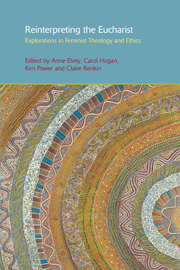
Reinterpreting the Eucharist
- Explorations in Feminist Theology and Ethics
-
- Published by:
- Acumen Publishing
- Published online:
- 05 April 2014
- Print publication:
- 31 December 2012
-
- Book
- Export citation
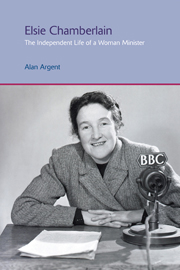
Elsie Chamberlain
- The Independent Life of a Woman Minister
-
- Published by:
- Acumen Publishing
- Published online:
- 05 April 2014
- Print publication:
- 31 December 2012
-
- Book
- Export citation
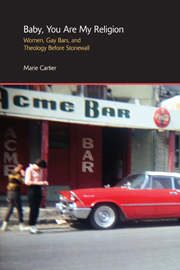
Baby, You Are My Religion
- Women, Gay Bars, and Theology Before Stonewall
-
- Published by:
- Acumen Publishing
- Published online:
- 05 April 2014
- Print publication:
- 30 November 2013
-
- Book
- Export citation
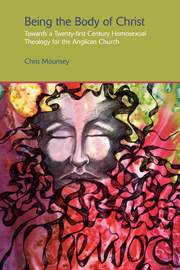
Being the Body of Christ
- Towards a Twentieth-Century Homosexual Theology for the Anglican Church
-
- Published by:
- Acumen Publishing
- Published online:
- 05 April 2014
- Print publication:
- 29 March 2012
-
- Book
- Export citation
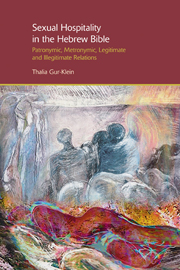
Sexual Hospitality in the Hebrew Bible
- Patronymic, Metronymic, Legitimate and Illegitimate Relations
-
- Published by:
- Acumen Publishing
- Published online:
- 05 March 2014
- Print publication:
- 30 September 2013
-
- Book
- Export citation

Radical Otherness
- Sociological and Theological Approaches
-
- Published by:
- Acumen Publishing
- Published online:
- 05 March 2014
- Print publication:
- 30 November 2013
-
- Book
- Export citation
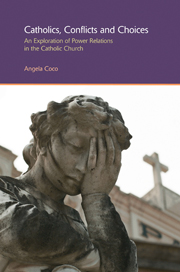
Catholics, Conflicts and Choices
- An Exploration of Power Relations in the Catholic Church
-
- Published by:
- Acumen Publishing
- Published online:
- 05 March 2014
- Print publication:
- 30 April 2013
-
- Book
- Export citation

